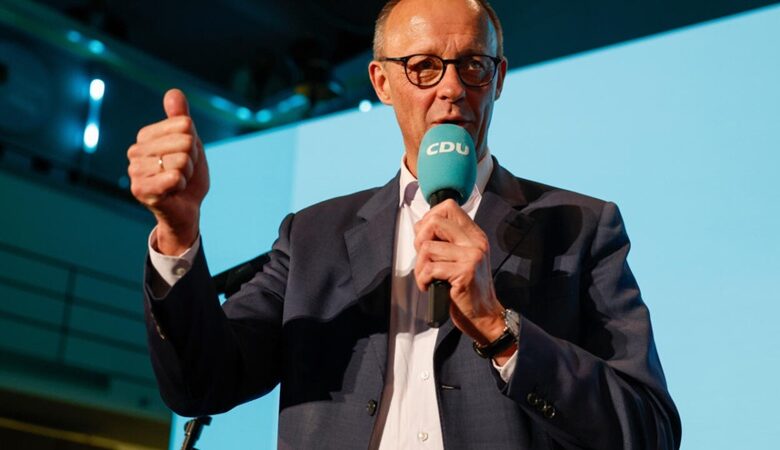Merz faces hard road to government after German election win
News Mania Desk / Piyal Chatterjee / 24th February 2025

On Monday, German conservatives led by Friedrich Merz pledged to swiftly establish a government following their victory in a national election, yet they encounter challenging coalition negotiations and the likelihood of a challenging parliament after significant gains by far-right and far-left parties.
Time is running out for Europe’s struggling largest economy, as Germans are split on migration, while its security is caught between a hostile U.S. and an assertive Russia and China, with companies seeking assistance to stay globally competitive. The most probable result of the election is a partnership between Merz’s conservative group and Olaf Scholz’s Social Democrats (SPD), who placed third after the far-right Alternative for Germany (AfD) made a historic leap to second.
The AfD and the far-left party together gained one third of the seats in the new parliament, sufficient to prevent constitutional amendments required to ease state borrowing limits—amendments that certain economists argue are crucial for stimulating economic growth.
Probable Chancellor Merz is anticipated to pursue a coalition with the SPD following a tough campaign that underscored significant policy rifts, especially regarding migration. The SPD, reeling from its worst outcome since the war, might demand a steep price for any agreement.
Merz has indicated a certain openness to modify the debt brake, a constitutional limit on government borrowing. “From our point of view, (talks) can start very, very quickly,” said Jens Spahn, a senior member of Merz’s centre-right Christian Democrats (CDU).
“The first talks should certainly be held this week, in the next few days. We see the situation in the world, Ukraine, Russia, the United States,” he said. “German leadership is needed.”
In an early indication of his policy intentions, Merz took aim at the U.S. after his win, criticising on Sunday what he called “outrageous” comments from Washington during the campaign, comparing them to hostile interventions from Russia.
“For me, the absolute priority will be to strengthen Europe as quickly as possible so that we can achieve real independence from the U.S. step by step,” Merz said on Sunday. According to provisional results, his CDU/CSU conservative bloc secured first place with 28.5%, while the AfD achieved 20.8%, marking its best result to date.
Mainstream parties, nonetheless, exclude collaborating with the AfD, a party under scrutiny by German security agencies over extremist suspicions yet supported by U.S. personalities like billionaire Elon Musk. A revitalized Left party alongside the AfD might hold a blocking minority in parliament, potentially hindering any necessary rise in defense spending to bolster European security. Both the AfD and the Left are against providing military assistance to Ukraine.
Holger Schmieding, the chief economist at Berenberg, noted that Germany might find it difficult to increase defense spending while also reducing the tax load for employees and businesses. “A failure to ramp up military spending could get Germany into deep trouble with its NATO partners,” Schmieding said. “By infuriating U.S. President Donald Trump, it could also add to the risk of a U.S.-EU trade war.”






